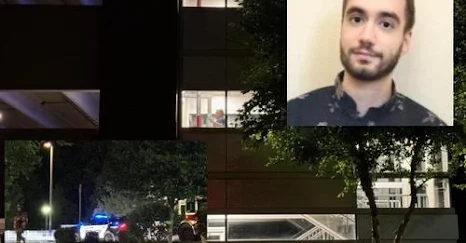Tyler Anderson, a resident of Dover who faced charges for allegedly threatening three presidential candidates, tragically passed away during his trial, prompting officials to move for the dismissal of the case against him.
The trial had garnered significant attention as Anderson stood accused of transmitting threatening messages across state lines, targeting Republicans Vivek Ramaswamy, Nikki Haley, and Chris Christie.
The FBI's involvement escalated when concerns arose about Anderson's well-being and the possibility that he might be armed and a danger to himself. Concord police, acting on information from the FBI, initiated a search throughout the city.
Ultimately, Anderson was discovered deceased in his vehicle, parked near Concord Hospital. Authorities emphasized that no foul play was suspected, although the circumstances surrounding his death remained under investigation.
Throughout the trial, Anderson's defense team argued that some of the messages he sent were protected under freedom of speech, raising complex legal questions about the limits of expression in the digital age.
The trial had commenced with jurors deliberating over the evidence, reaching a unanimous decision on one count but remaining deadlocked on others. Deliberations were interrupted when news of Anderson's death prompted prosecutors to swiftly file for the dismissal of the case.
Anderson's untimely passing not only halted the legal proceedings but also cast a somber shadow over the courtroom. Had he been convicted, Anderson faced a potential sentence of up to 15 years in prison, underscoring the severity of the charges he had faced.
In the aftermath of his death, reactions varied, reflecting the complexities of the legal and personal implications surrounding the case. The abrupt conclusion of the trial left lingering questions about Anderson's motives and mental state, as well as the broader implications of online threats in political discourse.
As investigations continue into the circumstances leading up to Tyler Anderson's death, his case serves as a poignant reminder of the challenges inherent in balancing free speech protections with public safety concerns in an increasingly polarized societal landscape.


